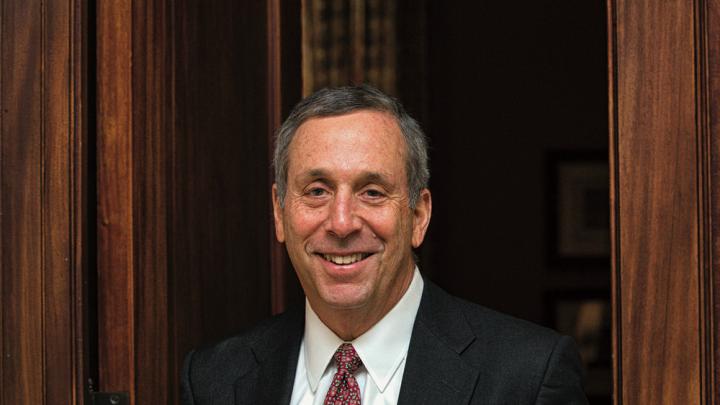Earlier this spring, I made my first major international trip as president of Harvard, and it easily ranks among the most memorable experiences I have had abroad. Alumni and friends turned out in full force to welcome me and my wife, Adele, to Hong Kong, Beijing, Shanghai, and Tokyo, where I learned about their hopes for the University’s future. I also met with college and university leaders at our partner institutions to discuss, among many other topics of mutual interest, the role that higher education can and should play in the world. No matter where I found myself, there were many opportunities to speak about the importance of strengthening existing academic ties at a moment when some of the traditional bonds of cooperation and collaboration between nations are under strain.
One of the absolute highlights of my visit was delivering a keynote address to students, faculty, staff, and administrators at Peking University. Speaking about longstanding connections between China and the United States, I recounted being a young faculty member at MIT in the late 1970s and witnessing a historic visit from a delegation of visiting scholars from China. Long separation had not weakened the bonds of affection among students and their teachers or faculty and their colleagues. Some of them had not seen each other for decades, but they greeted one another as if they had been apart for only a short while and soon found themselves engaged again in areas of common interest. It was powerful evidence to me that universities can be sources of strength through tough economic, political, and social times.
Universities can also be sources of strength because of the diverse communities they create and nurture. When I last traveled to Beijing, I was president of Tufts and hosted a dinner for a dozen alumni of the Fletcher School of Law and Diplomacy. They all held ambassadorial rank: nine ambassadors serving in China and three Chinese ambassadors serving in Australia, New Zealand, and North Korea. Many of these individuals had overlapped during their time at Fletcher, and the relationships they developed as students helped to bridge differences between their countries. Embracing diversity is not just good for enriching our campus communities—it is good for improving the wider world.
In the weeks since my return, I have received many emails and letters, some of them underscoring the kinds of deep and lasting bonds that colleges and universities create among their students and between students and their teachers. The responses made me think more deeply about my own early days at Harvard. I still recall wonderful parties at the home of my Harvard Kennedy School classmate Jack Reed. At the time, I couldn’t have dreamed that he would one day be the senior senator from Rhode Island, and I imagine that my own path to the Harvard presidency was just as unimaginable for him. We are now old friends bound by fond memories who are working side by side to strengthen not just the institution that brought us together but all of American higher education.
Therein lies one of the great strengths of campus life. Where else can one engage with so many different types of people who share a common interest in pursuing knowledge? Everyone I know who attended Harvard enjoys friendships that have endured long after graduation, friendships that have not just sustained them but proven meaningful and useful in ways they never could have predicted. If one thing has struck me over the course of my first year in office, it is the extraordinary—and oftentimes incredible—strength of these connections, and the ways in which they shape and change the world.
I hope you will take time during this season of commencement exercises and graduation celebrations to reflect on the relationships you formed at Harvard and the difference they have made in your life. So much of what makes the University wonderful are the stories of people it brought together—and where they went afterwards.









